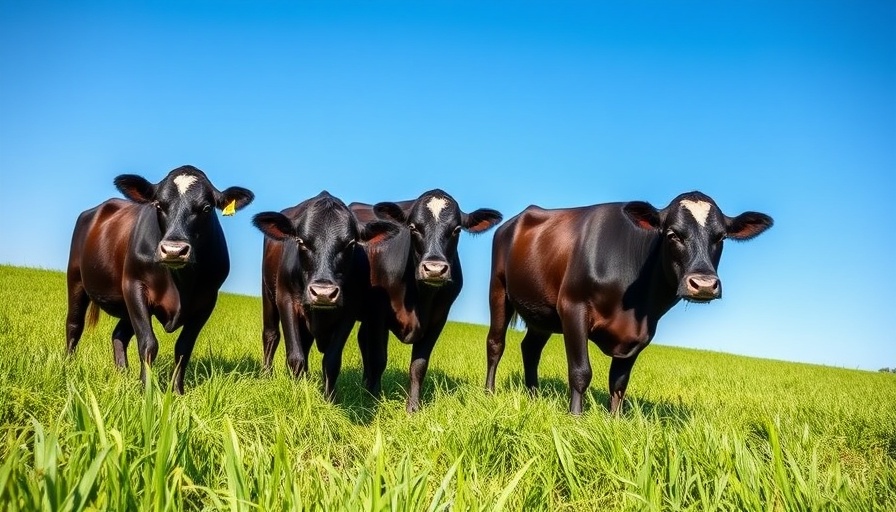
Discovering the Nutritional Superiority of Grass-Fed Yogurt
In recent years, a surge of interest in healthier food options has brought grass-fed yogurt to the forefront. But what precisely sets this dairy delight apart from its conventional counterparts? The answers reside not just in taste but in the robust nutritional and environmental benefits it promises. Grass-fed yogurt is made from the milk of cows that graze primarily on grass, resulting in a product that is richer in heart-healthy omega-3 fatty acids and essential vitamins compared to traditional yogurt made from grain-fed cows.
Grass-Fed vs. Conventional Yogurt: What’s at Stake?
The nutritional composition of grass-fed yogurt is what makes it stand out. Milk from grass-fed cows is rich in conjugated linoleic acid (CLA), a healthy fat that is largely responsible for various health benefits, including improved metabolism and anti-cancer properties. Research indicates that dairy products derived from pasture-raised animals boast significantly higher CLA concentrations—up to five times more than those sourced from grain-fed cows, providing reasons to consider a shift to grass-fed dairy products.
The Unique Benefits of Grass-Fed Yogurt
Among the many perks of opting for grass-fed yogurt, these four benefits are particularly noteworthy:
- Rich Source of Omega-3 Fatty Acids: As grass-fed cows consume a higher ratio of omega-3 sources, their milk translates into yogurt that is not only nutritious but also beneficial for brain and heart health.
- Anti-Inflammatory Properties: The omega-3 content in grass-fed yogurt can help mitigate inflammation, which is linked to various chronic diseases.
- Essential Vitamins: Grass-fed options have higher concentrations of vitamins A and E, crucial for immune function and skin health, and also act as powerful antioxidants.
- Probiotic Benefits: Like all yogurts, grass-fed varieties are naturally loaded with probiotics that support gut health and enhance digestion.
A Deep Dive into Nutritional Science
Evidence increasingly supports that the dietary fats from grass-fed dairy pack a more balanced nutritional punch. Nutritional ratios in grain-fed versus grass-fed dairy often reveal concerning disparities; the omega-6 to omega-3 ratio in traditional dairy can lead to an imbalance, fostering inflammatory conditions in the body. Grass-fed dairy often achieves a healthier balance with a ratio closer to the ideal 2:1 or 4:1, while typical grain-fed options can exceed 20:1. This data underscores the importance of dietary choices rooted in natural, pasture-based farming.
The Ethical and Environmental Impact of Grass-Fed Dairy
Choosing grass-fed yogurt is not only about personal health but also aligns with a more humane and eco-friendly agricultural approach. Cows raised on pasture not only lead healthier lives, free from the confinement and unnatural diets typically associated with conventional farming, but also contribute to a more sustainable farming system. Pasture-based farming practices encourage better soil quality, biodiversity, and lower greenhouse gas emissions, making choices about yogurt far more consequential than one might realize.
Making the Transition: Simple Steps to Add Grass-Fed Yogurt to Your Diet
Transitioning to grass-fed yogurt can be as easy as exploring local markets or health food stores that specialize in high-quality dairy products. Brands like Stonyfield and Maple Hill Creamery now offer a variety of grass-fed yogurt options that cater to discerning consumers eager for nutritional benefits and ethical assurance. Consider incorporating grass-fed yogurt into your morning routine, whether in smoothies, as a base for parfaits, or as an ingredient in toppings and sauces.
In Conclusion: Why You Should Consider Grass-Fed Yogurt
The benefits of grass-fed yogurt are compelling, combining nutritional superiority, the ethical treatment of livestock, and positive environmental impacts. So, if you’re in the habit of stocking your fridge with yogurt, consider making the switch to grass-fed options. Not only will your body thank you, but you’ll also contribute to a more sustainable food system. With the growing availability of grass-fed dairy, there has never been a better time to embrace this healthier option in your daily diet.
 Add Row
Add Row  Add
Add 




Write A Comment